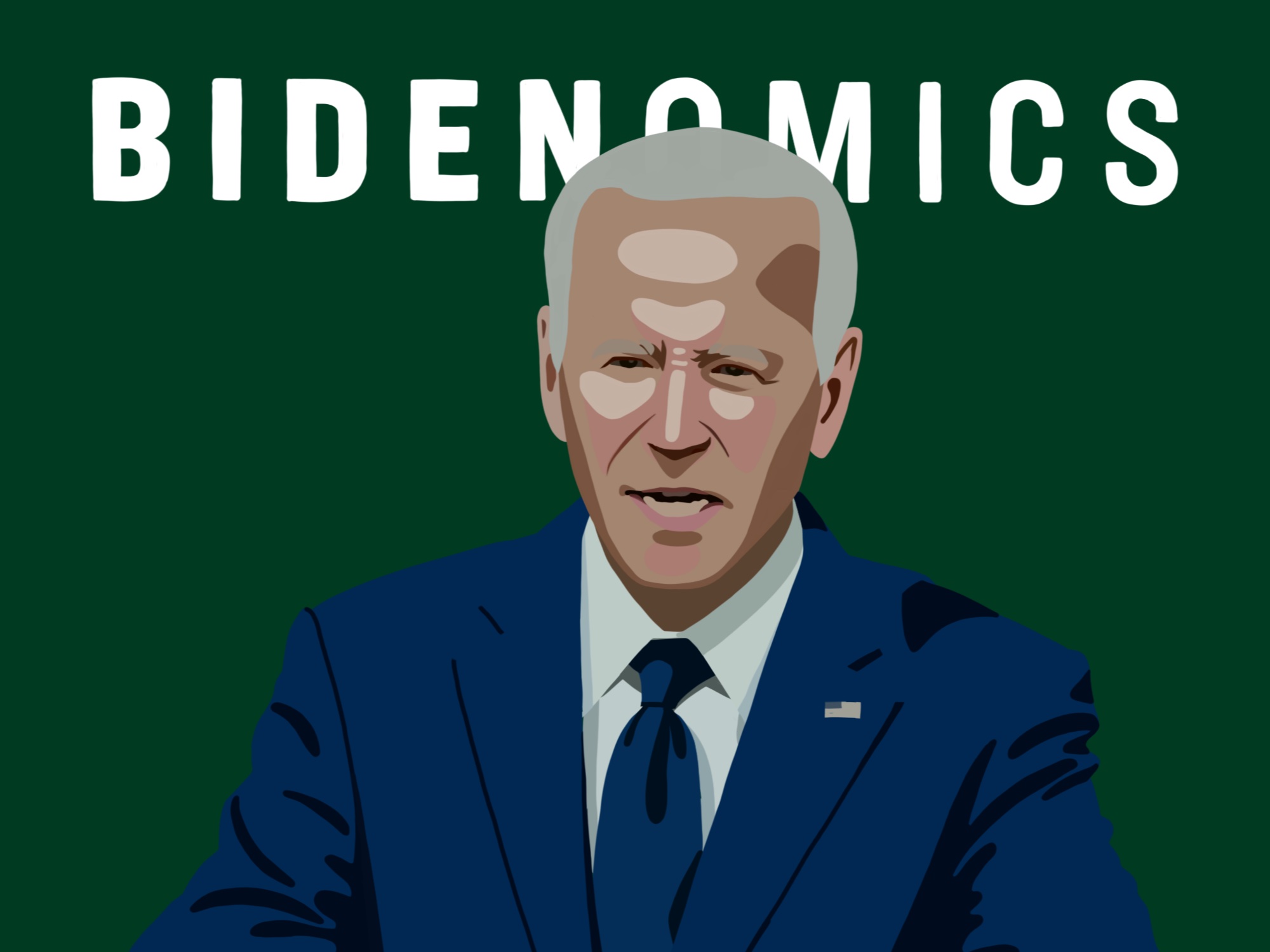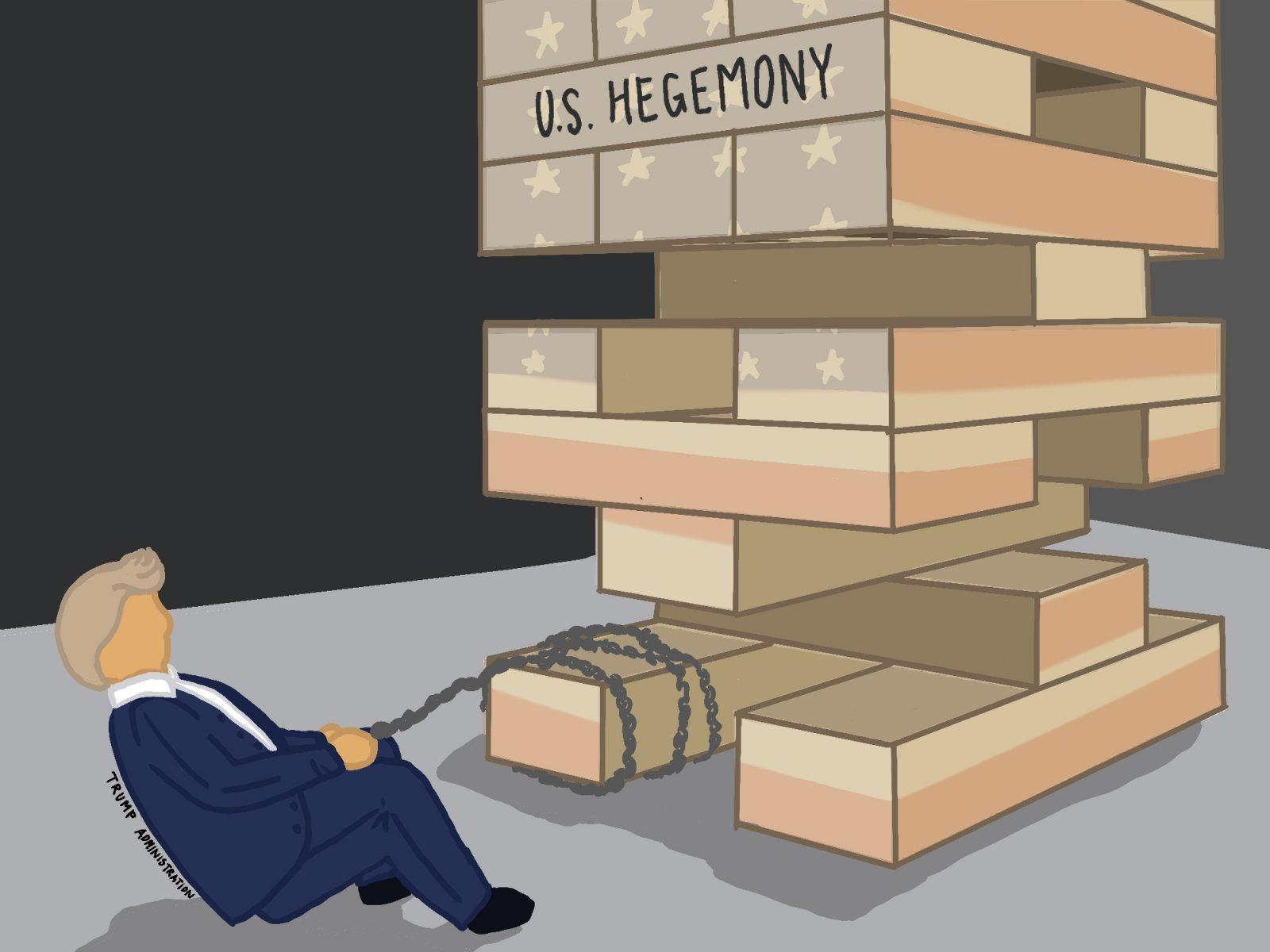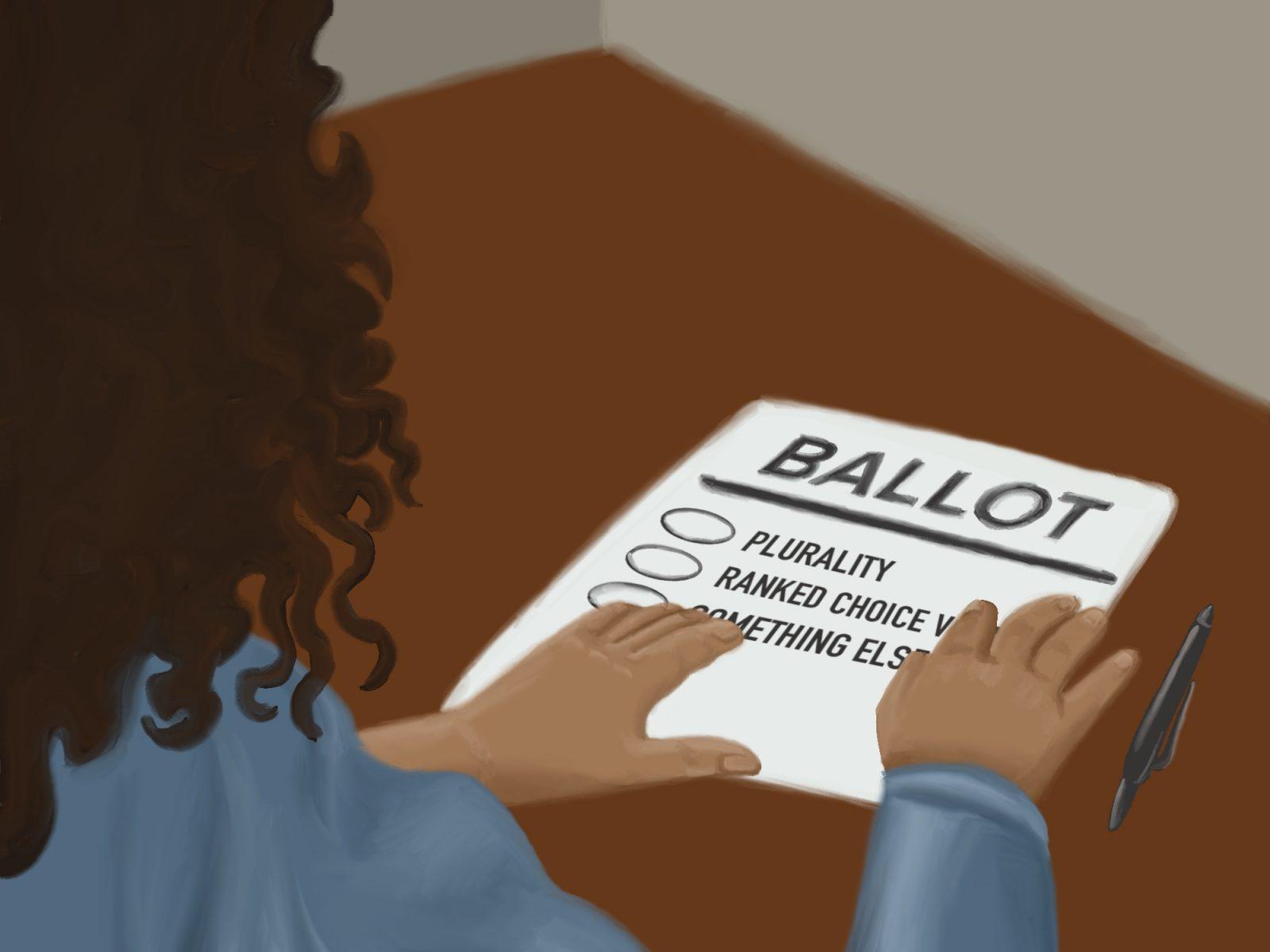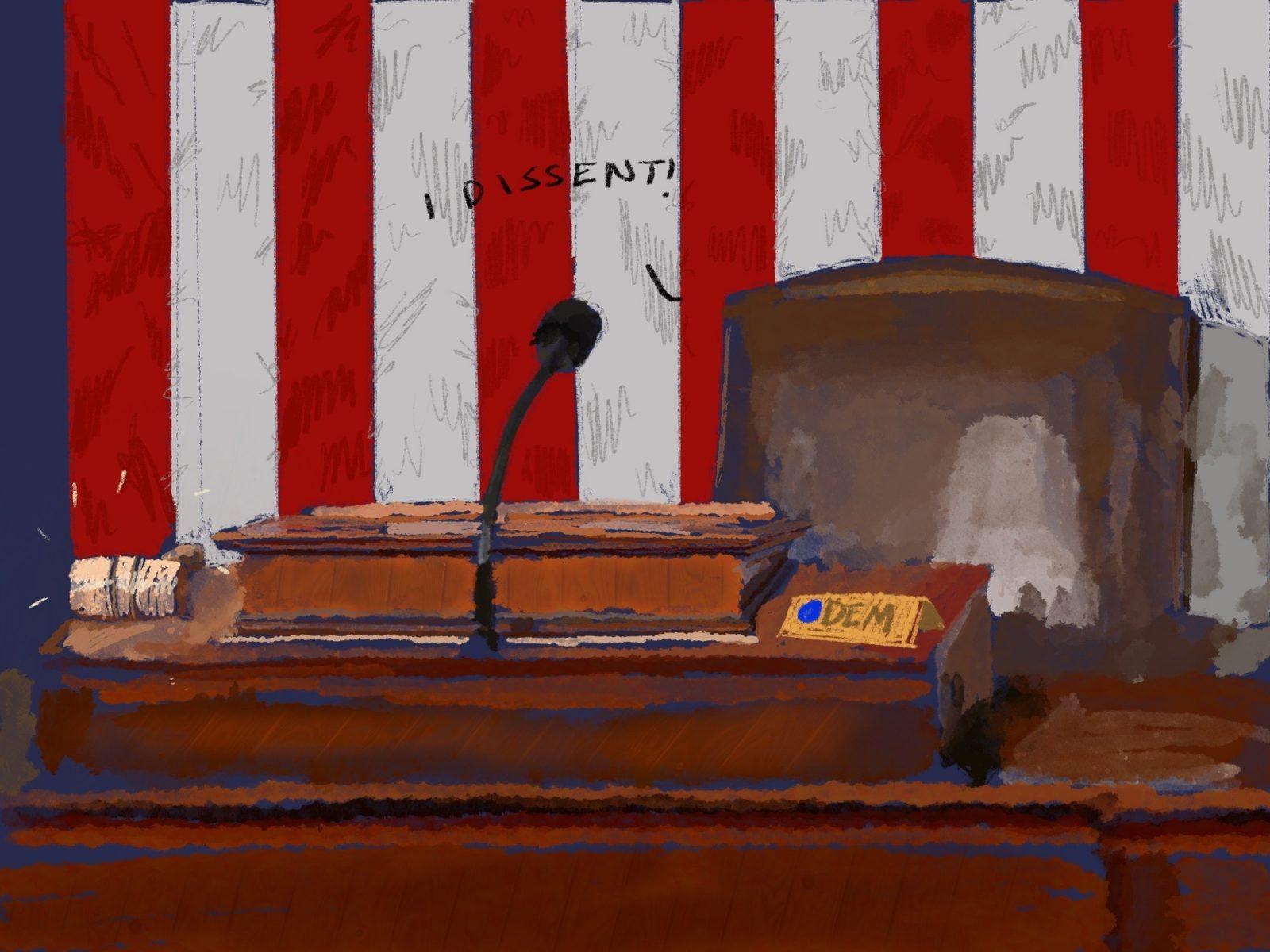It shouldn’t be too controversial to say that the perception of our national economy should be consistent for every citizen. Spending, wages and monetary rates should all be perceptible in the same or similar light.
But politics has changed this notion. Our individual perceptions of our collective economy have become entrenched alongside our political positions.

Democrat and Republican voters draw different conclusions about the state of the economy despite their groceries being the same price.
This phenomenon has never felt more alive than it has during the Biden administration. Critics of Biden’s economy have resorted to stickers of Biden pointing to gas pumps saying, “I Did That!” to imply Biden being at fault for a hike in prices. Defenders of Biden’s economy have adopted the once-used-critically term “Bidenomics.”
“Bidenomics” was a term coined by a Republican congress member to describe the failures of the administration’s economic attempts, but the administration has responded by reclaiming the term for themselves.
Bidenomics is a reversal of former President Ronald Reagan’s “Reaganomics,” which sought to remove structures of trickle-down economics, instead promising to expand the economy from the middle class out and the bottom up through employment, technological developments and investments, education and competition.
Biden’s White House has countlessly reiterated how their framework has been successful. There have been consistent reiterations of record national economic growth, record new business creation, record stock market numbers and record low unemployment.
The White House’s self-endowed list of accomplishments details how they’ve rescued the economy post-COVID-19 pandemic, lowered everyday expenses and provided debt relief.
Despite this, more than one in 10 American families continue to live in poverty. Wealth inequality continues to pervade economics, with 10% of families owning almost 75% of U.S. wealth. Seven in 10 individuals report living paycheck-to-paycheck. More families are forced to shoplift simply to survive.
If the economy is said to be doing so well, why do so many families continue to suffer without any hope of escaping financial burden? Why is wealth growing in concentration among the richest? Why are my socks and deodorant being locked up behind glasses in my local Target?
The punch line of this story? Naturally, it’s to ask how any of this may have to do with us.
Well, needless to say, economics is an unavoidable part of our lives. How much we spend and how much we make is a direct result of who we elect as our government officials.
This provides another “gotcha” moment to talk about how important the 2024 presidential election will be and why our participation in it is paramount to our own livelihoods.
Sure, I discussed a lot of the misses that the Biden administration has when it comes to today’s economy. But when it comes down to Biden versus his opponent Donald Trump, there is a clear distinction on who can better manage the economy to meet the needs of the average citizen.
Because if there’s anything Trump’s presidency proved, it’s his inability to handle an economic crisis — such as in the case of the unemployment rates and stock market during the COVID-19 pandemic.
By contrast, recent Democrat presidents were forced to pull America out of horrid economic situations. Barack Obama’s administration had to lead the reigns out of the 2008 recession, while Biden’s administration had to lead us out of the 2020 pandemic-induced recession.
With that added hurdle, Biden has managed to bring us back to normalcy and continues to outperform Trump’s numbers by creating more average jobs, lowering unemployment rates, increasing disposable income, raising the stock market, dipping student loans and more.
It’s undeniable that the Biden administration has many economic crises to address. But the Reaganomics that led to many of today’s crises are similar to Trump’s economic models.
The economy will always be a feisty topic, and it’s become even more of a political weapon in recent years. But who we choose to affect our economic trajectory is no small matter. And in this coming election between Trump and Biden, the choice seems hard.
Biden’s economy has discord in its reported and perceived numbers. To present itself as the better election choice, the administration has to resolve this discord and make sure our consumer impression of the economy doesn’t continue to be so hotly contested, and present itself as the clear better decision than Trump’s economic policies.
























































































































Mark Premock • Mar 27, 2024 at 10:23 am
Well written and well said!